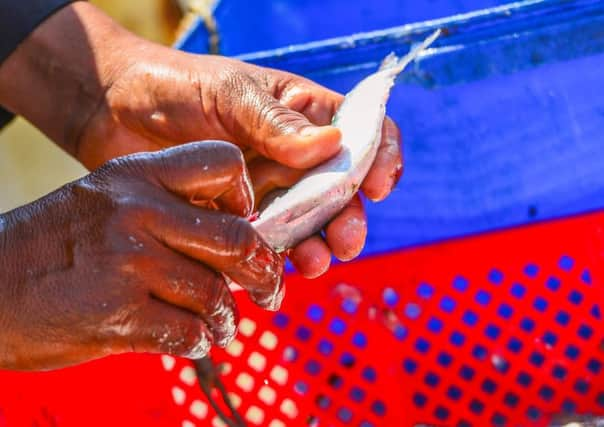Scavenging seabirds hit by drop in North Sea fisheries discards


A reduction in the amount of unwanted catch being dumped overboard by fishing fleets could be having a significant impact on seabird numbers, new international research suggests.
Academics say millions of seabirds depend on fisheries discards for survival and new regulations aimed at cutting waste could be driving declines in some species.
Advertisement
Hide AdAdvertisement
Hide AdThe study, by scientists in the UK and Germany, looked at links between the quantity of fish thrown away in the North Sea and the numbers of seabirds the waste could support.
The findings show almost 510,000 tonnes was thrown back in 1990 – enough to feed around 5.66 million birds.
But 20 years later, in 2010, discards dropped to 267,000 tonnes – sufficient to support 3.45 million birds.
The researchers studied populations of northern fulmar, northern gannet, great skua, common gull, lesser black-backed gull, herring gull, great black-backed gull and black-egged kittiwake.
They estimate the reduction in discards would have hit three species the hardest, feeding 1.4 million fewer northern fulmars, 1.3 million fewer black-legged kittiwakes and 630,000 fewer herring gulls.
The results correspond with declines at some North Sea colonies of these species.
Lead researcher Dr Richard Sherley, of the University of Exeter’s Environment and Sustainability Institute, said: “Commercial fishing has a variety of effects on marine life, but the impact of discards is one of the least studied and least understood.
“Our study highlights the sheer number of scavenging birds potentially supported by discards and thus the importance of understanding the wider ecological consequences of dumping fisheries waste.
Advertisement
Hide AdAdvertisement
Hide Ad“With discards declining over the period we studied, the number of birds able to rely on this has also declined.”
Many of the UK’s seabirds are experiencing dramatic declines, with a number of factors blamed, including climate change and over-fishing.
The new European Landing Obligation means all fish unintentionally caught must be taken to port and declared.
Alex Kinninmonth, head of marine policy for RSPB Scotland, said: “Seabirds are in decline for a whole variety of reasons – not least the climate crisis, as well as the pressure of fisheries and growing offshore industrial development pressure. This research is a reminder of the real urgency for collective concerted efforts, backed by serious government and industry investment, to encourage a recovery in our globally important seabird populations.”